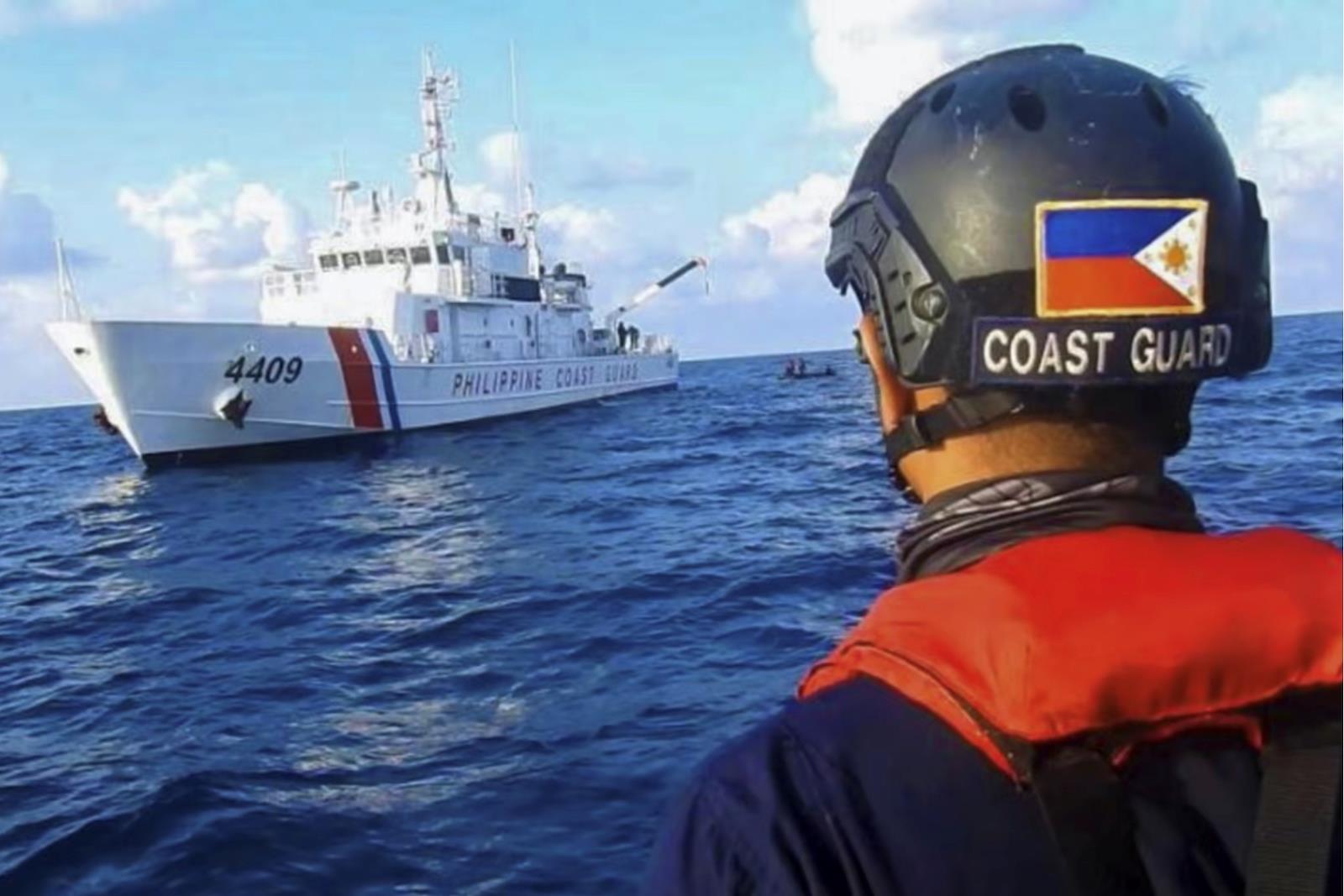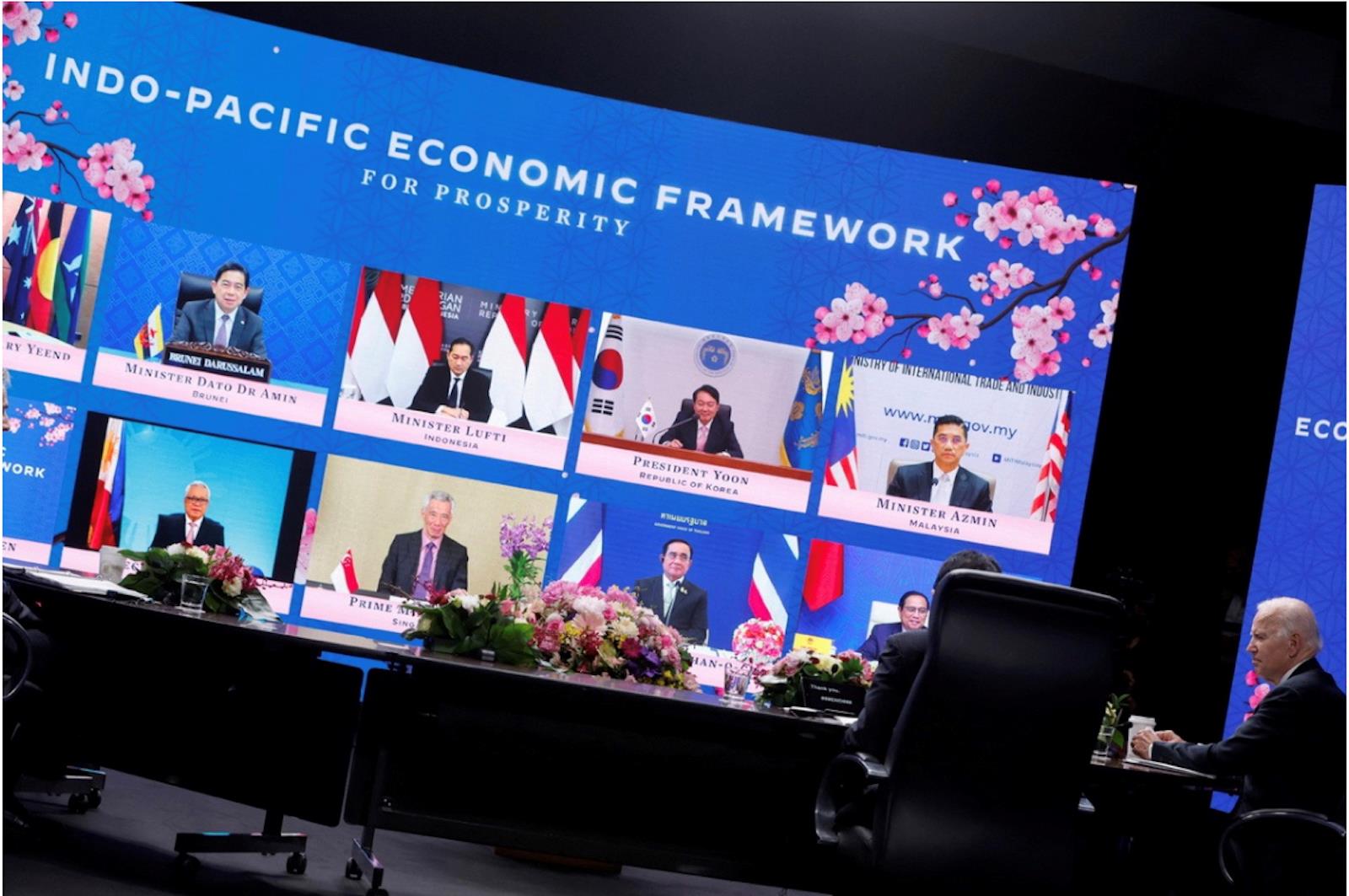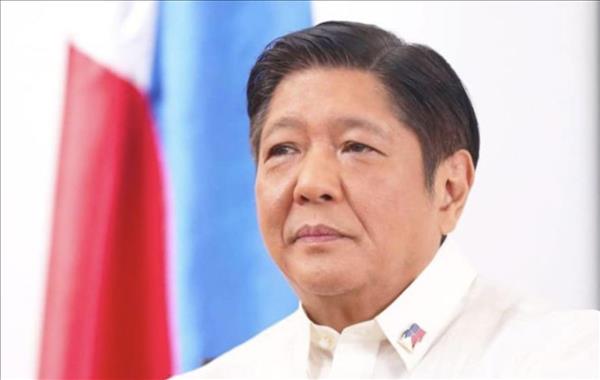
US, China In A Diplomatic Tug-Of-War For Marcos
MANILA – Chinese Foreign Minister Wang Yi is in the middle of a wide-reaching Southeast Asia tour, marking Beijing's latest counter to America's rising diplomatic outreach to the strategic region. Wang's most crucial trip on his ongoing five-nation itinerary, however, is arguably to the Philippines under newly-elected president Ferdinand Marcos Jr.
“My visit is intended to reflect the importance China attaches to China-Philippines relations and its support for the new Philippine government, as well as the continuity and stability of China's friendly policy towards the Philippines,” Wang told his hosts in Manila, where he met the new president as well as Vice-President Sara Duterte, Foreign Secretary Enrique Manalo and National Security Adviser Clarita Carlos.
China's top envoy celebrated how the two countries“turned a new page” in their bilateral relationship during outgoing president Rodrigo Duterte, who pursued warmer ties with Beijing and Moscow at the expense of traditional Western allies under his“independent” foreign policy doctrine.
Wang's visit came less than a week after Chinese Vice-President Wang Qishan, a top aide to President Xi Jinping, attended Marcos Jr's inauguration.
While sounding confident about the direction of bilateral relations with the Philippines, a US treaty ally, China is also acutely aware of the strategic reboot underway under the new Filipino president.
Unlike his immediate predecessor, who repeatedly threatened to sever the Philippines' alliance with America in favor of China, Marcos Jr has shunned any anti-Western rhetoric and taken an initially tougher stance on the South China Sea disputes. Ahead of his meeting with Wang, the new Filipino president held conversations with at least three high-level American officials, including by telephone with US President Joe Biden.
Marcos Jr has indicated his preference for a“multi-vector” foreign policy , which aims to derive maximum benefits from and ensure minimum dependence on major powers.
Amid a new Cold War in the region, both Washington and Beijing have been actively courting the new man in Malacañang Palace to enhance their strategic footprint in Southeast Asia. Amid that rivalry, Marcos is set to become the first Filipino president to visit the White House in recent history.
Hard-won gains
Wang is the first Chinese foreign minister since Qian Qichen to also simultaneously serve as a state councilor. Later this year, however, together with former Chinese foreign minister and Politburo member Yang Jiechi, Wang is expected to retire from office.
After serving as China's top diplomat for a decade, Wang will likely be replaced by one of his deputies, namely Ma Zhaoxu or Le Yucheng, or perhaps Xi loyalists and hardline apparatchiks such as Liu Haixing or Deng Hongbo.
A suave diplomat nicknamed the“silver fox” by Chinese media, Wang is by now a legendary Asia hand in the Chinese Foreign Ministry who oversaw Beijing's contentious relations with neighboring states, especially Japan.

Chinese Foreign Minister Wang Yi, aka the silver fox, is on a five-nation Southeast Asian tour. Photo: AFP
The transformation in Philippine-China relations will likely be seen as one of his key diplomatic accomplishments.
Over the past decade, Wang has had to grapple with seismic shifts in Manila's foreign policy, beginning with former and now deceased president Benigno Aquino's decision to take Beijing to international court over their South China Sea disputes.
At one point, bilateral ties became so toxic that Chinese leaders refused to meet their Filipino counterparts, who became the most active proponents of Washington's“pivot to Asia” policy.
The election of pro-Beijing president Rodrigo Duterte in 2016, however, upended Manila's relations with the US and EU. In a radical departure from his country's foreign policy tradition, the populist president threatened to nix the Philippines' century-old alliance with Washington in favor of cultivating more robust strategic and defense ties with Beijing and Moscow.
“Actually President Duterte is the most respected and the most important friend for President Xi Jinping and the Chinese people,” Wang said during a 2018 visit to Duterte's hometown of Davao. In response, the then-Filipino president, who never tired of praising China as his most trusted strategic partner, wished that“our friendship will enjoy a thousand years.”
For China, the recent wild swings in Philippine foreign policy have underscored the importance of ensuring a smooth transition under Duterte's successors. In recent years, the social media platform Facebook, now renamed Meta, flagged several China-based accounts that supported a potential
“Duterte-Duterte” tandem for the 2022 presidential elections, with the then incumbent running under his daughter, Sara, for the nation's top two offices.
China, however, warmly welcomed Marcos Jr's presidential bid later on , noting the decades-long cordial relations between Beijing and the powerful Philippine political dynasty. Former Filipino strongman Ferdinand Marcos, Marcos Jr's deceased father, was among first US allies to normalize bilateral ties with Maoist China at the height of Cold War.
Strategic reboot
During his visit to Manila, Wang left no stones unturned.
He met vice-president Sara Duterte to reaffirm strong bonds with the other major Philippine dynasty. Wang also met National Security Adviser Clarita Carlos, a trusted adviser to the Marcoses, to cement the broad positive momentum in bilateral relations under Duterte.
During their meeting, the two sides agreed to“not let the dispute define bilateral relations, and not let specific differences hinder cooperation between the two countries,” according to a Chinese foreign ministry statement.
In an indirect jab at the US and Japan, who respectively formerly colonized and occupied the Philippines, the Chinese diplomat pledged that his country would never“follow the old path of colonization and plunder by the old major powers” and insisted that“our only choice is to be friendly, friendly and more friendly.”
By and large, however, the new Filipino president is already recalibrating his predecessor's foreign policy.

Members of the Philippine Coast Guard patrol at the Whitsun Reef in the South China Sea on April 14, 2021. Photo: Philippine Coast Guard
Most prominently, he has taken a more uncompromising stance on the South China Sea spats, even threatening to deploy warships to the disputed areas and reiterating the finality of the Philippines' arbitration award victory against Beijing handed down by an arbitral panel at The Hague in 2016.
In many ways, Marcos Jr is adopting a“multivector” foreign policy, which combines strategic assertiveness with pragmatic, non-ideological engagement with all major powers. Unlike Duterte, who cussed at Western leaders and fawned over Chinese and Russian counterparts, the new Filipino president has welcomed greater strategic and economic relations with America.
Even before his inauguration, Marcos Jr held cordial conversations with multiple senior US officials, including US President Biden, who was the first foreign leader to congratulate him after the elections, as well as the US Deputy Secretary of State Wendy Sherman, who reassured the new leader against any legal troubles should he soon visit the White House.
The Marcoses face multiple charges in US courts, including a US$353 million contempt case, over allegations of corruption and human rights violations during Marcos Senior's iron-fisted dictatorship.
During her meeting with Marcos Jr last month, however, Sherman reassured the new Filipino president that,“when you are head of state, you have immunity in all circumstances and are welcomed to the United States in your official role.”
Relishing Washington's strategic outreach, Marcos Jr reassured his country's sole treaty ally that he will“assert our territorial rights” and“talk to China consistently with a firm voice” regarding the South China Sea disputes.
The new Filipino president has also welcomed expanded trade and investment relations with the US, including the Philippines' membership in the Biden administration's newly launched Indo-Pacific Economic Framework, which aims to compete with China's economic initiatives in the region.

Joe Biden's Indo-Pacific Economic Framework aims to counterbalance China's rising power and influence in Southeast Asia. Image: Facebook
His national security adviser, meanwhile, has vowed to pursue“critical engagement” with China. Crucially, Marcos Jr has also appointed veteran and traditionally-minded veterans to lead his top departments, with former military chief Jose Faustino Jr taking over the Department of National Defense (DND) and career diplomat Enrique Manalo appointed to lead the Department of Foreign Affairs.
Over the coming weeks, the Marcos Jr administration will have to make important choices, including his first major foreign destination. And he will likely try to extract maximum benefits from stable relations with both the US, which seeks an expanded military presence in the Philippines, and China, which seeks greater investments in the Philippines' strategic infrastructure.
Whether the new Filipino president can effectively balance relations with both superpowers amid a raging new Cold War, however, remains to be seen.
Follow Richard Javad Heydarian on Twitter at @richeydarian

Legal Disclaimer:
MENAFN provides the
information “as is” without warranty of any kind. We do not accept
any responsibility or liability for the accuracy, content, images,
videos, licenses, completeness, legality, or reliability of the information
contained in this article. If you have any complaints or copyright
issues related to this article, kindly contact the provider above.


















Comments
No comment